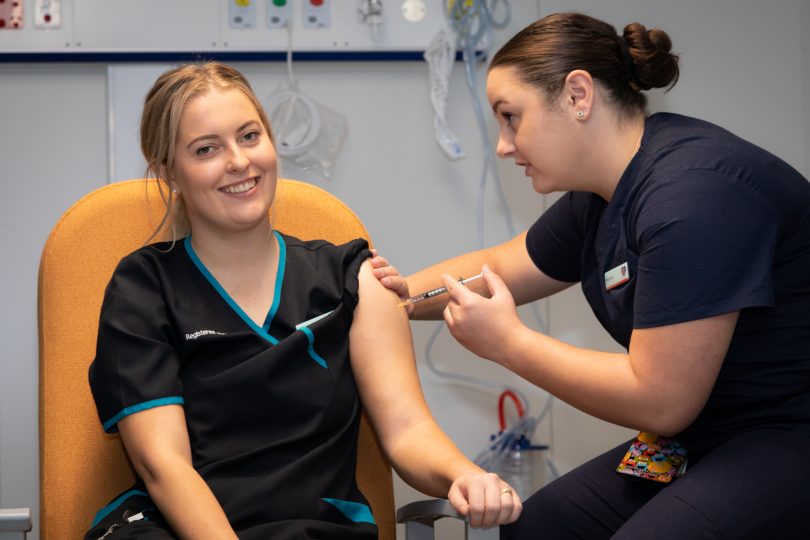
ACT Health Minister Rachel Stephen-Smith says the AstraZeneca vaccine is safe and effective. Photo: Michelle Kroll.
Canberrans will still receive the AstraZeneca jab despite a pause on the vaccine’s rollout in some European countries.
France, Germany and Italy are among the countries that have stopped administering the vaccine over blood clotting concerns, but the Australian Therapeutic Goods Association (TGA) and Chief Medical Officer Paul Kelly have said there is no evidence of a correlation between the clots and the vaccine.
The European Medicines Agency (EMA) reported 30 cases of blood clots among five million vaccinations across Europe, while AstraZeneca said that 17 million people had received the vaccine across Europe and the UK.
ACT Health Minister Rachel Stephen-Smith echoed the comments from Australian Government authorities, saying there is no evidence linking the vaccine to blood clots, low platelet counts or any other serious side effects being reported.
“There are underlying health issues right across the community, and so it is not surprising that some people will have a health issue that emerges that isn’t related to the vaccine,” she told ABC Radio this morning.

Nurse Maddy Williams was the first person to be vaccinated in the ACT. Photo: Michelle Kroll.
Ms Stephen-Smith said the action taken by some European countries were “very precautionary” and that Australian health authorities are continuing to monitor the situation and will conduct thorough assessments of the vaccine if concerns arise.
All vaccines are batch tested by the TGA when they arrive in Australia.
ACT Health is continuing with its plan to administer 3500 vaccinations this week and ramp up capacity after the arrival of extra Pfizer doses over the weekend.
On Monday (15 March), around 500 people were vaccinated at the Garran Surge Centre, which is used as a hub for both the Pfizer and AstraZeneca vaccines.
ACT Health is working towards 6000 vaccinations a week, depending on supply from the Commonwealth Government.
For more information about the rollout of the vaccines in the ACT, visit www.covid19.act.gov.au/vaccine.













